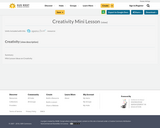
Mini Lesson Ideas on Creativity
- Subject:
- Arts Education
- Drama
- Material Type:
- Activity/Lab
- Lesson
- Date Added:
- 10/22/2018

Mini Lesson Ideas on Creativity
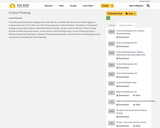
The power point will provide strategies and to add skills to our toolkits that can be used to help engage our students in the use of 21CC skills- one of the focuses this year is Critical Thinking. The deBono’s Thinking Hat strategy is a great way to help us think differently and critically. As well, teachers will find a Critical Thinking (Socratic/Scholarly Discussion) Rubric, 3 more various Critical Thinking rubrics, Critical Thinking Exit Slips, a deBonos thinking hat explanation, a deBonos Thinking Hats worksheet, a PMI (Plus-Minus-Interesting) document and activities associated with ctritical thinking.
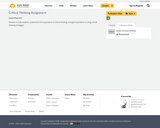
A lesson to help students understand the importance of critical thinking, and gain experience in using critical thinking strategies.
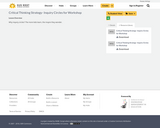
Why Inquiry circles? The more kids learn, the mopre they wonder.
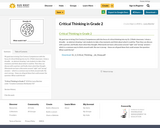
My goal was to bring 21st Century Competences with the focus of critical thinking into my Gr. 2 Math classroom. I show a droodle – an abstract drawing. I ask students to take a few moments and think about what it could be. Then they can discuss with a partner, and finally share what they thought. Afterwards we have a discussion around “right” and “wrong” answers – which is a common way to think around math. No one is wrong – these are all good ideas that could answer the question: What could this be?
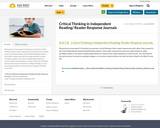
My goal was to have grade 5-8 students incorporate critical thinking in their reader response journals, where they respond to text read independently during Guided Reading stations. I feel reader response journals encourage students to apply strategies taught in class when reading independently to improve their understanding of a variety of text. Our SLIP goal for the past two years focused on reading strategies, so I was also trying to build on the work we were doing for the West Colony PLT.
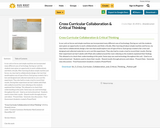
In our unit on forces and simple machines we incorporated
many different uses of technology. During our unit the students were
given an opportunity to work collaboratively and think critically. After
learning all about simple machine and forces, my class had to
collaboratively design a fair test that would explore one of type of force.
Each group created a fair a test and designed and collected materials to
carry out this experiment. They also had to create a tool to record their
results. During their experiment we had 3 adults with iPads who walked
around the room videoing as the students explained their findings. This
allowed us to check their understanding at this point.
Some ways we used technology throughout this unit
- Used as an instructional tool
- Students used to share their results
- Shared results through pictures and videos
- Present Data
- Generate class discussions
- Final Assessment (students created a PowerPoint)
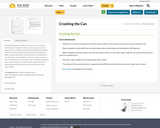
Science Background:
• Inside the can at room temperature (with the water inside) is at the same air pressure as the air outside the can
• Water expands to about 600 times its liquid volume when heated above its boiling point (100 degrees)
• Water expands and pushes almost all of the air outside of the can. The water vapor inside the can has the same pressure as the air outside the can
• Hot water vapor condenses into liquid water when cooled
• The volume of the condensed water is approximately 600 times less than the previous hot water vapor volume
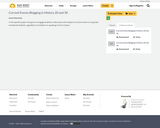
In this specific project, the goal is to engage students in discussion and analysis of current events in a way that involved all students, regardless of confidence in speaking in front of peers.
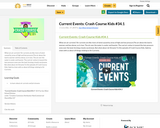
What are air currents? Air currents are like rivers of wind caused by areas of high and low pressure.The air above the land is warmer and less dense, so it rises. The air over the water is cooler and heavier. The cool air rushes in toward the low-pressure zone over the land, forming a lovely sea breeze. But what about Jet Streams? In this episode of Crash Course Kids, Sabrina chats with us about all things relating to Air Currents.
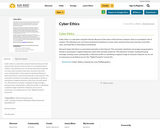
Cyber ethics is a code when using the Internet. Because of the nature of the Internet, however, there is no standard code of conduct. The individual user can choose what kind of websites to create, what comments they post, how they treat other users, and what files or information to download.
Research shows that there is a perceived anonymity on the Internet. This anonymity sometimes encourages young people to initiate or participate in negative behaviour when they normally would not. This behaviour includes: sending threating messages, posting rumors, posting fake or offensive profile, or submitting a negative image of someone. However, we are not as anonymous as we believe we are. Our "Digital Footprint" proves this.
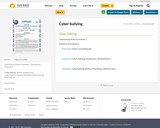
Cyberbullying: Broken Friendships 1
Cyberbullying Assignment
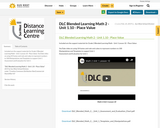
Included are the support materials for Grade 2 Blended Learning Math - Unit 1 Lesson 10 - Place Value:
YouTube video on using 10 frames and rods and cubes to represent numbers to 100
Manipulatives and Templates to support Unit 1
Assessment and Evaluation for Unit 1
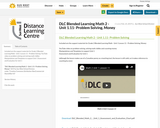
Included are the support materials for Grade 2 Blended Learning Math - Unit 1 Lesson 11 - Problem Solving:
YouTube video on problem solving and solving math riddles
Manipulatives and Templates to support Unit 1
Assessment and Evaluation for Unit 1
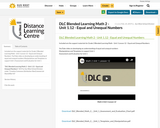
Included are the support materials for Grade 2 Blended Learning Math - Unit 1 Lesson 12 - Equal and Unequal Numbers:
YouTube video on developing an understanding of equal and unequal numbers
Manipulatives and Templates to support Unit 1
Assessment and Evaluation for Unit 1
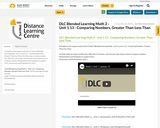
Included are the support materials for Grade 2 Blended Learning Math - Unit 1 Lesson 13 - Comparing Numbers, Greater Than-Less Than:
YouTube video on using a number line, 100 chart, ten frames, and rods and cubes (place value) to compare numbers
Manipulatives and Templates to support Unit 1
Assessment and Evaluation for Unit 1
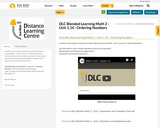
Included are the support materials for Grade 2 Blended Learning Math - Unit 1 Lesson 14 - Ordering Numbers:
YouTube video on order numbers (greatest to least, least to greatest)
Manipulatives and Templates to support Unit 1
Assessment and Evaluation for Unit 1
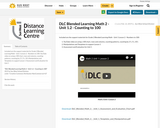
Included are the support materials for Grade 2 Blended Learning Math - Unit 1 Lesson 2 - Numbers to 100:
YouTube video on using a 100 chart, rows and columns, counting patterns, counting by 2'1, 5's, 10's
Manipulatives and Templates to support Lesson 1
Assessment and Evaluation for Unit 1
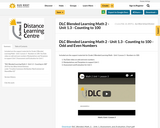
Included are the support materials for Grade 2 Blended Learning Math - Unit 1 Lesson 3 - Numbers to 100:
YouTube video on odd and even numbers
Manipulatives and Templates to support Unit 1
Assessment and Evaluation for Unit 1
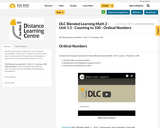
Included are the support materials for Grade 2 Blended Learning Math - Unit 1 Lesson 5 - Numbers to 100:
YouTube video on ordinal numbers
Manipulatives and Templates to support Lesson 1
Assessment and Evaluation for Unit 1